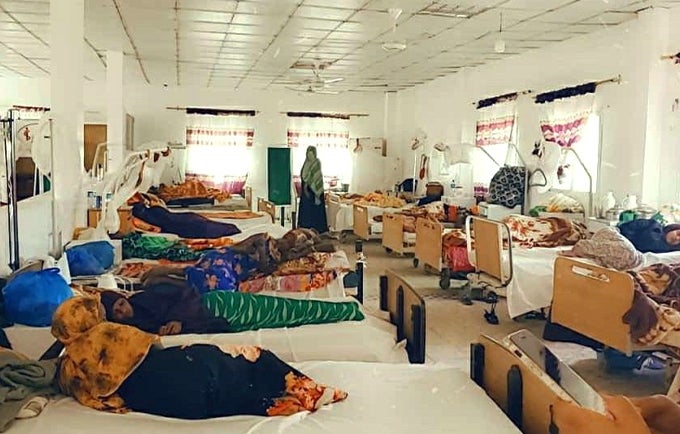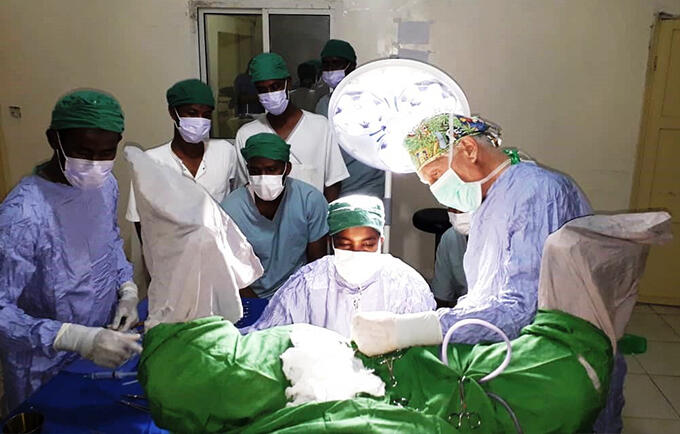“I have never been happier in my life than I am now. I can now participate in community activities and interact with everyone easily. I no longer feel lonely,” Zainab Osman Muhamad from Burco, Somaliland, says. The 27-year-old woman had been living with obstetric fistula, one of the most demeaning medical nightmares any woman could suffer. Ms. Muhamad gave birth when she was 24-years-old after an obstructed labour that lasted for two days. She could no longer control the flow of urine and faeces from her body after the ordeal.
Ms. Muhamad was being assisted by a traditional birth attendant (TBA) in the initial stages of her labour. “I wanted to give birth at home as I didn’t know that it’s safer to give birth at a health facility with trained midwives. I was made to believe that it’s more convenient, comfortable and dignifying to give birth in my own place assisted by a TBA known within my community.”
But the TBA failed to see the birth through. She gave up after the long hours of struggling to help Ms. Muhamad deliver her baby and arranged to have her taken to Burco Regional Hospital. Medical doctors performed an emergency caesarian section to save Ms. Muhamad’s life. “I suffered excruciating pain before the surgery. Unfortunately, the baby was still-born because of the long, obstructed labour. I was so exhausted and weak and had already developed fistula,” she says.

a fistula ward in Borama
According to the Somali Health and Demographic Survey 2020, only 32 percent of women giving birth in Somalia have been assisted by a skilled health provider.
For one year, Ms. Muhamad was unable to control her bowel movement and urine. “I felt humiliated and shunned by my community, and this started to affect me psychologically,” she narrates. She says she went back to Burco Regional Hospital after some months, and the midwives advised her to go to Borama National Fistula Hospital to seek medical assistance.
Ms. Muhamad travelled at her own cost and met the local doctors at the fistula hospital. However, they could not help her. “The doctors said my condition was complicated. I went back home with so much sorrow and continued to live an isolated life,” she narrates.
Two years later, Ms. Muhamad heard about a fistula campaign that UNFPA supported. The campaign would cover all necessary expenses. She immediately registered herself, and within a few weeks, she was back at Borama National Fistula Hospital but with hope this time.
Ms. Muhamad has since 2018 enjoyed a life free of obstetric fistula after undergoing surgery which took over five hours.
The surgery was carried out by Dr. Thomas Raassen, a renowned doctor from the Netherlands. Dr. Raassen has performed many fistula repairs in more than 60 hospitals across Africa and Asia. He is considered one of the experts in fistula repairs. The surgeon also carried out life-changing surgeries for 32 other women.
Dr. Raassen said the causes of obstetric fistula across Somalia and Somaliland included that many young girls are delivering at a young age which leads to prolonged labour and later on fistula. He also said many mothers try to deliver at home instead of at health facilities and that almost none of the mothers are educated. He worried that nearly all fistula survivors end up being abandoned by their husbands after they get fistula.
“We need to train more local doctors to be able to repair even complicated cases of obstetric fistula,” said Dr. Raassen.
A good proportion of Somalis live in rural areas. Some are nomads and do not have defined and stable settlements and move around in hard-to-reach areas. Pregnant mothers are unable to reach health facilities in good time.
Ms. Muhamad and the other women were supported by UNFPA with transportation from their villages and cities to Borama National Fistula Hospital and back home. Furthermore, UNFPA supported the women with accommodation and food throughout their stay in Borama and with free health services and the medication needed.
UNFPA supports the Somali health sector, including public and private entities and NGOs, to run three main fistula centres in Somaliland, Mogadishu and Puntland to end obstetric fistula in Somalia by 2030.
---Dr. Layla Hashi


